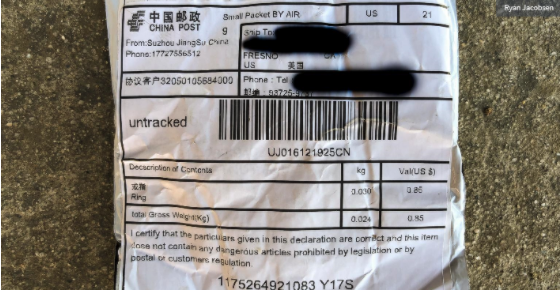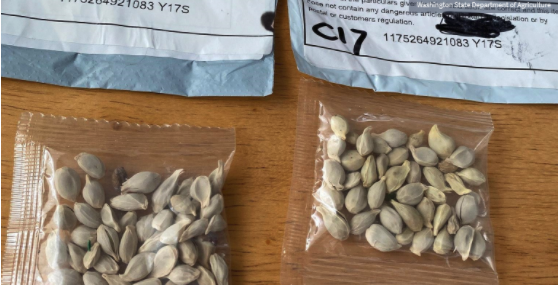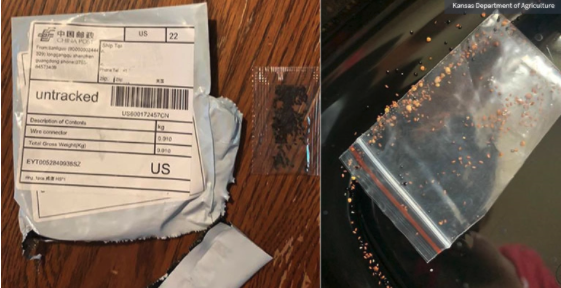USDA: Mystery Seeds Were Part of 'Brushing Scam'
March 10th, 2021
In July 2020, reports surfaced of U.S residents receiving unsolicited packages of seeds in the mail, according to the Western Farm Press. Some people threw the seeds away, some people planted the seeds and some people reported them. Seeds were received by residents of all 50 states.
Warnings went out for residents to call state agriculture officials, and the U.S. Department of Agriculture (USDA) got involved and worked with the state departments of agriculture. USDA indicated that the seeds included a mixture of ornamental, fruit, vegetable and weed seeds.
In California, county agricultural departments asked residents to leave the seed packets unopened and turn them in to local offices. In some cases, police departments were reportedly involved as residents questioned the origin of the unsolicited packages.
USDA's Animal and Plant Health Inspection Service (APHIS) found no evidence that the seeds were distributed to intentionally harm U.S. agriculture. APHIS officials believe the unsolicited packages are part of an internet “brushing scam” – where sellers ship inexpensive items to increase transactions. The more transactions a seller completes, the higher their rating and the more likely that their items will appear at the top of search results on e-commerce websites.
APHIS has been working with e-commerce companies to remove online sellers that participate in the illegal import of seeds, and to ensure that sellers who use their platforms are complying with USDA import regulations.
USDA provides guidance on the APHIS website to help online buyers and sellers comply with U.S. laws when they import seeds and live plants. “Plants and seeds for planting purchased online from other countries can pose a significant risk to U.S. agriculture and natural resources because they can carry harmful insects and pathogens,” said USDA Plant Protection and Quarantine Program Deputy Administrator Dr. Osama El-Lissy.
The USDA has a website to inform consumers about the proper way to buy and sell plants and seeds from online sources.
Need Help with Farm Financing?
Community West Bank fulfills the financing needs of our farmer and rancher clients with Farmer Mac mortgage loans for land acquisition, loans to refinance existing debt, and financing for capital improvements.
For information about available funding for land acquisitions, refinancing, or other lending options for agricultural projects, please contact us to get started.


